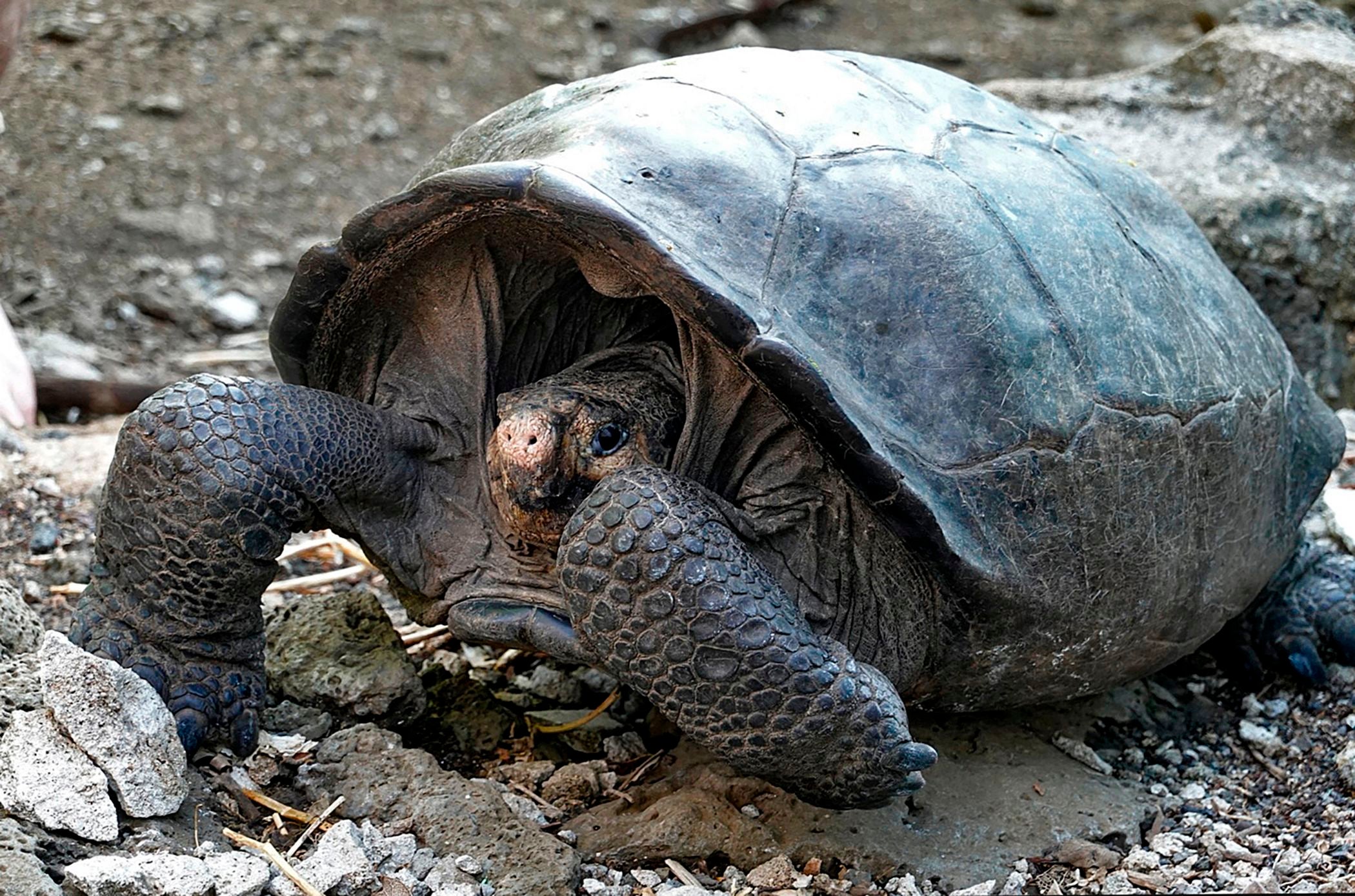Giant tortoise believed to have died out on Galapagos Islands is back from brink of extinction
Samples from female specimen compared with DNA of male from 1906

A species of giant tortoise thought to have died out more than a century ago has been found alive on the Galapagos Islands.
Scientists confirmed through genetic testing that a single female found during a 2019 expedition to Fernandina Island is in fact part of the species Chelonoidis phantasticus – known as the Fernandina giant tortoise.
A DNA sample taken from the female was compared to one taken from the remains of a male from the species.
Tortoises of this type had not been seen since 1906, when scientists from the California Academy of Sciences sailed to the Galapagos Islands to carry out a comprehensive survey of flora and fauna.
A male specimen was taken back to the academy’s herpetology department and its remains stored there.
Geneticists from Yale University were able to use samples from the specimen to determine that the female observed 115 years later was of the same species.
The Galapagos Islands are the territory of Ecuador, and the environment minister celebrated the news.
“It was believed to have gone extinct more than 100 years ago!” tweeted Gustavo Manrique, adding: “Hope is alive.”
The female Fernandina giant tortoise, who is thought to be more than 100 years old is now at a breeding centre on Santa Cruz Island.
Tracks and faecal matter found on Fernandina Island appear to indicate that more of the species may exist in the wild.
An expedition is now planned to try and locate other surviving members of the species.
Join our commenting forum
Join thought-provoking conversations, follow other Independent readers and see their replies
Comments